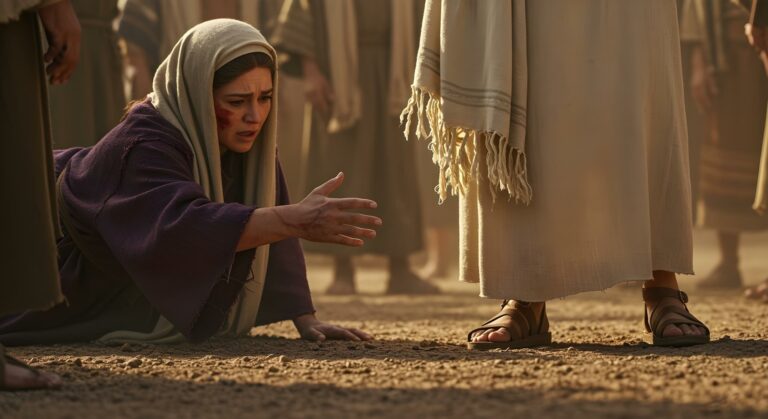I have been a Christian long enough to know that none of my own ideas are very good. That is to say, if I know something really important, or if I say something that’s deep, I didn’t come up with it. My growth as a follower of Jesus Christ has been dependent on two things: listening very carefully to what the Holy Spirit says in Scripture, and listening very carefully to what he tells me through other people. In short, everything I have, I’ve received (1 Corinthians 4:7).
One thing I thank God for receiving more than most is a particular set of questions. It’s more of an idea, really. And this is the idea: we expose ourselves to a lot more goodness when we read the Bible with other people. Whatever we lack in understanding (and it’s always a lot) can be shored up by the people around us, especially those who, through their faith in Christ, have the Holy Spirit at work in their hearts to help us. Instead of trusting ourselves to know it all, believe it all, and obey it all on our own, why don’t we humble ourselves enough to let other people help us?
If you can admit that much at least is a good idea, you’ll wonder exactly what that looks like. It certainly happens when faithful and wise Christians teach the Bible to us, whether as part of our worship together on Sundays or otherwise. But knowing that the Holy Spirit is present and working in all who know Christ (Ephesians 1:13-14), and knowing that everyone who believes the gospel has knowledge of the truth (1 John 2:20), doesn’t it make sense that you don’t have to be a capital-T Teacher in order to be a good teacher? Don’t you have some insight, some wisdom, some example in your life that could really help me?
But where do you start? Enter: the Three Questions.
Technically, the Three Questions have a collective name: the Swedish Method. If you’d like to read much more about the Three Questions (including how they acquired such a weird name), this article will tell you all you need to know. (I really do recommend reading it—it’s fascinating.) But suffice it to say that, for a number of reasons, I prefer my own (highly boring and non-creative) phrase of “the Three Questions.”
What are the Three Questions? They’re three simple things to ask yourself and others whenever you read the Bible:
- What’s interesting about this?
- What’s confusing about this?
- What should I do with this?
Of course, you can use the Three Questions to guide your personal Bible reading to make sure that you’re doing more than running your eyes over the page. But I get much more mileage out of them when someone else asks me the questions as part of a normal conversation.
There’s no need to come up with anything impressive-sounding as a response to the question. In fact, I actively discourage people from trying to do so! Be honest. Be simple. Just answer the questions!
Here’s one example of how the Three Questions can spur good conversations that go beyond the words on the page. Today I read Ecclesiastes 1-2 with a friend at a coffee shop. In no particular order, here are some of the ways the two of us answered the first question (“What’s interesting about this?”):
- The book doesn’t have a named author—just someone named “the Teacher.” That strikes me as interesting, even strange.
- The first chapter has a lot of poetic, philosophical language. That’s different from the stories of Jesus’ life or the teachings of Paul. I bet it would appeal to people who aren’t naturally into those parts of the Bible.
- In fact, the first couple chapters really seem to directly challenge what the rest of the Old Testament (especially Genesis) teaches. The Preacher really slams some biblical ideas—that life has a purpose, that God is working out a plan in the world, that wisdom has eternal value, etc.
- In Ecclesiastes 2:8, the Teacher says that he availed himself to “a harem”—and calls the women “the delights of the heart of man”! That’s interesting, to say the least!
As you can see, the interesting things lead to lots of questions. In this passage, some of the more confusing things we saw led to questions like these:
- How did this book even make it into the Bible?! Can a biblical book also be un-biblical?
- Is the rest of the book going to answer that question?
- Who is the Teacher? Is it Solomon? Could someone else fit the self-description in Ecclesiastes 1:1?
- What does the Teacher mean by “under the sun” (Ecclesiastes 1:3 and elsewhere)?
Finally, we asked each other the final question: what should we do with these chapters?
- We definitely need to read the rest of the book to see where the Teacher is going!
- We need to examine our lives—are they really “meaningless” (Ecclesiastes 1:2)? We need to compare these chapters with the rest of the Bible to figure out what’s going on here.
- The Teacher writes that chasing after wine, women, and song is a waste of time and totally pointless (Ecclesiastes 2:9-11). Am I chasing after pleasure like he did? Am I setting myself up for the same disappointment?
What answers would you add?
The questions are short and simple—there’s no rocket science that makes them so powerful. But ask yourself: how could you use them?
- What if you and your spouse picked a book of the Bible to read through together? You could meet up once a week—even nightly—to share your answers (and spur each other on to even better, more personal answers).
- What if you used the Three Questions to discuss a passage of Scripture with your kids or grandkids? That’s what I’ve been doing this year—using the questions to talk through the Gospel of Mark with my six- and five-year-old sons. Their answers are always surprising, frequently hilarious, and sometimes shocking. It is never boring or a waste of time.
- What if you used the Three Questions to invite a curious non-Christian to study the life and teachings of Jesus for herself? This is my favorite form of evangelism—instead of memorizing a script, get out of the way and let Jesus speak for himself!
At the end of the day, only the Spirit himself can help us grow and learn and experience more of the grace of Jesus. The Three Questions assume that, in prayer, you’re entrusting him to do the real work. But he uses tools to do that work, most especially the word of God—and other people.
Why not use a simple tool like the Three Questions to see what he would do for (and through) you?



